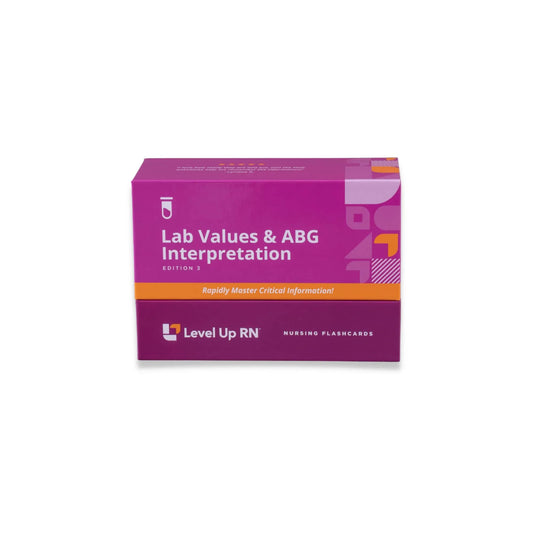Lab Values, part 11: Myoglobin
The lab value myoglobin, including its function in the body, the expected range, and possible causes and duration of elevation.
Quiz Questions
The nurse educates a patient that myoglobin differs from troponin in which way?
The nurse educates a patient that myoglobin differs from troponin in which way?
Full Transcript: Lab Values, part 11: Myoglobin
Full Transcript: Lab Values, part 11: Myoglobin
Hi, I'm Meris, and in this video, I'm going to be talking to you about the lab value myoglobin, what it means, its expected range, and what it means when it's elevated. All right, let's go ahead and get started. All right, so what is myoglobin? So great question. Myoglobin is an oxygen-binding protein that is found in muscle tissue, specifically in skeletal and cardiac muscle tissue. So this is a really important thing for our muscles to have because we need to be able to take in and hold on to that oxygen for that intense muscular activity that we might be doing if we are doing some kind of exercise or even just any mobility whatsoever.
Now, the really important thing that I want to get across to you here, though, is that when we see myoglobin released in the body, again, that means that there is some variety of muscle breakdown that is happening. That important muscle protein is not where it's supposed to be. It has been liberated. It has been freed into my blood. So that means something isn't right. There's some kind of injury occurring to muscle tissue. But the thing to know about myoglobin is that it is not specific for cardiac muscle tissue. Myoglobin is present also in skeletal muscle, so this is important to understand that just because my myoglobin is elevated doesn't mean I'm having a heart attack, right? It could. We may need more investigation. Maybe with the lab values troponin, T and I, go watch the previous video on that, or even CK-MB. Maybe I need an EKG, but myoglobin by itself does not mean cardiac muscle damage. It just means muscle damage, okay?
Now, when we're talking about the expected range, again, do I expect an average patient to be experiencing muscle breakdown, muscle damage of some sort? No, I don't. So there's some variety of breakdown and rebuilding going on in my body at all times. So we do give ourselves just a little bit of a wiggle room there. But that's why our expected range is less than 90 micrograms per liter. And I want you to-- we in nursing are so quick to just dismiss the units that come after. But micrograms per liter, we expect there to be fewer than 90 micrograms, tiny little amounts, in one liter, right? A big amount of blood. So there's expected to be almost none. As close to 0 as we can be, is really what we are hoping for when it comes to myoglobin.
Now, what if I have elevated myoglobin in my blood? What if I have found that my patients got some level that's coming back way higher than that, and we're saying, "Ooh, yikes. Something's not right here." Well, this could indicate myocardial infarction. Again, remember, it doesn't rule out the heart. It also just doesn't rule out any of those muscles, right? So we need to do some more investigation. But really, what it's telling me is that we're having some variety of muscle damage or inflammation that it is affecting my patient's body. And I need some more context from that patient. I need the full clinical picture to tell you more about what that means. But starting with the onset of symptoms, here's how long things are going to be elevated for. So it's going to take about two to three hours for myoglobin to be elevated in my blood. So let's say I tear my hamstring or something like that, and I go to the hospital 20 minutes later. My myoglobin isn't going to be elevated right away. It's going to take two to three hours. It's going to be peaked at around 4 to 12 hours, and it will be elevated for 24 hours. So in contrast to troponin-- go watch the previous video. In contrast to troponin, this is a much shorter duration of time that this lab value is expected to be elevated, okay?
So really important take-home things here. This does not distinguish between cardiac and skeletal muscle damage. We expect the value to be less than 90 micrograms per liter, and it's only going to be elevated for approximately 24 hours from the onset of symptoms. I'm so glad you stayed until the end because I've got some quiz questions to test your knowledge of key facts provided in this video.
The nurse educates a patient that myoglobin differs from troponin in which way?
Both laboratory tests show muscle breakdown. However, troponin is specific for cardiac muscle while myoglobin is not.
All right, that is it for this video. I really hope you learned something. All right. Thanks so much, and happy studying.


